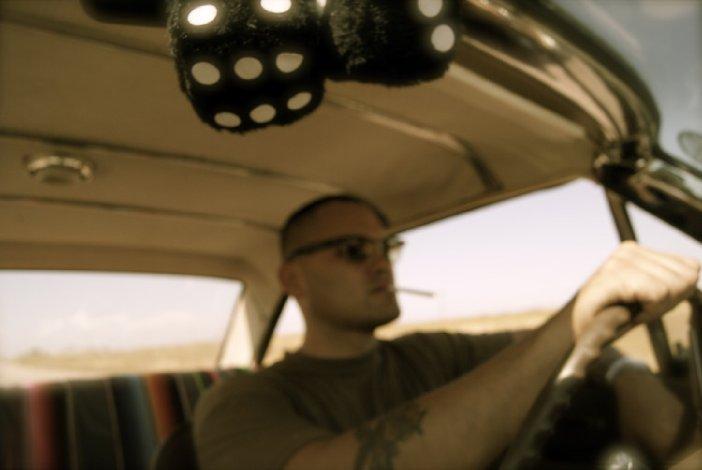American soldiers have left Iraq, but Iraq hasn’t left America’s soldiers
Colby Buzzell served in Iraq and came back with Post Traumatic Stress Disorder. (Photo from Amazon.com.)
Colby Buzzell is a veteran of the Iraq War.
He served in a Stryker brigade and saw heavy combat. Now, he’s suffering from Post-Traumatic Stress Disorder, but he’s trying to get his arms around this latest, personal battle.
“At first you think everything is normal, then you just notice things that you’re doing that you don’t realize you’re doing it at the time,” Buzzell said. “I locked myself in my room, and my routine pretty much every day was to the liquor store and back.”
Buzzell said he felt depressed and thought he could find happiness in the liquor bottles. But he also felt anxiety simply from being near people.
“If I was around other people, I’d want to get away from them. I’d want to be by myself. I didn’t want to talk anyone. I didn’t want to be around other people,” he said.
He said small things would trigger his PTSD. For example, he said seeing people enjoying themselves at a restaurant, oblivious to the war in Iraq, would set him off.
“The war’s invisible to everyone,” he said.
When he was alone in his room, he’d chain-smoke, drink and stare at the wall. From time to time, he’d look at pictures and places from Iraq, but sometimes that would just send him down farther.
“Mostly, it was just numbing myself to everything,” he said.
Buzzell said now he’s trying to move on from his time in Iraq. Another veteran told him that you have to look at that time of your life as a chapter in a book. A chapter that has ended. And that’s what he’s trying to do.
Buzzell, who the Army tried to convince to re-enlist shortly after his return from Iraq, has written a book about his experiences: My War: Killing Time in Iraq. He was recalled to active duty in 2008 and reported to Fort Benning. He was declared unfit for deployment by the Army’s doctors.
And ye, he said he hears from the Army almost once a week, trying to convince him to re-enlist.
“It’s kind of like a telemarketer doing pressure sales, trying to get you to re-enlist,” he said.
The story you just read is accessible and free to all because thousands of listeners and readers contribute to our nonprofit newsroom. We go deep to bring you the human-centered international reporting that you know you can trust. To do this work and to do it well, we rely on the support of our listeners. If you appreciated our coverage this year, if there was a story that made you pause or a song that moved you, would you consider making a gift to sustain our work through 2024 and beyond?
